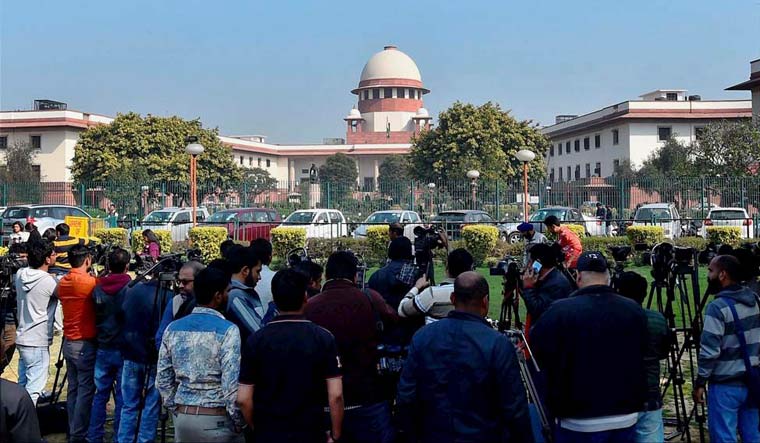The concepts of life and death have always inspired poets, philosophers and thinkers. Hence it was inevitable that the Supreme Court judges, as they made their pronouncements on legalising passive euthanasia, should draw inspiration from some of the immortal words articulated on the topic down the ages.
The top court's order, which effectively makes the right to die with dignity a part of the fundamental right to life and liberty, is made poignant by the judges delving into issues such as what makes life meaningful, and the moral, ethical, social and medical complexities associated with the question of how to approach death. And in doing so, they refer liberally to literature, philosophy as well as popular culture.
Chief Justice of India Dipak Misra, in his order, quoted Swami Vivekananda to say that it has to be understood that life is the lamp that is constantly burning out, and if one wants to have life, one has to die every moment of it. He referred to metaphysical poet John Donne having written about life and death in Death, be not proud:
“One short sleep past, we wake eternally
And death shall be no more; death, thou shalt die.”
Ernst Hemingway, in his book, The Old Man and the Sea, expounds the idea that man can be destroyed, but cannot be defeated. This, wrote Misra, can mean in the present context that life sans dignity is an unacceptable defeat and life that meets death with dignity is a value to be aspired for.
Justice Ashok Bhushan, in his order, referred to Plato's The Republic, to talk about the dilemma of the medical practitioners when dealing with patients who are hopelessly ill.
Bhushan quoted from The Republic: “But if a man had a sickly constitution and intemperate habits, his life was worth nothing to himself or to anyone else; medicine was not meant for such people and they should not be treated, though they might be richer than Midas.”
Justice A.K. Sikri quoted popular Kishore Kumar song Rote hue aate hain sab, hansta hua jo jayega, woh Muqaddar ka Sikandar jaaneman kehlayega (Every person in this world comes crying. However, the person who leaves the world laughing/smiling will be the luckiest of all). To underline the idea of the right of an individual to have a death that is devoid of agony or suffering, Sikri also referred to a quote of Mahatma Gandhi: “Death is our friend... he delivers us from agony. I do not want to die of a creeping paralysis of my faculties – a defeated man.”
To emphasise the importance of an individual's ability to make personal choices on decisions that affects his or her life, Justice D.Y. Chandrachud mentioned a line from the book The Last Lecture, written by Randy Pausch, a professor at Stanford, in the shadow of a terminal illness. Pausch had written: “We cannot change the cards we are dealt, just how we play the hand”.


